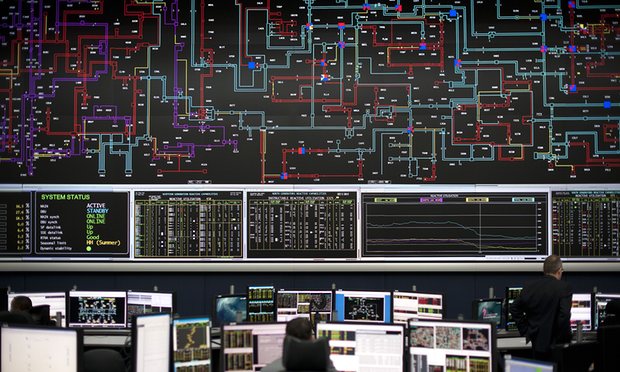The new data system, created using telecoms technology by Reactive Technologies (RT) and now successfully tested on the UK’s National Grid, could allow the optimum use of intermittent renewable energy, an important feature given the fast-rising proportion of green energy on the grid.
Unlike the smart meters being rolled out by the UK government, the new system is anonymous, with no data on household energy use being collected and therefore avoiding concerns about privacy.
The system uses new technology to send messages through national electricity cables to any appliances with a smart plug connected to the mains, asking it to adjust its energy use. In the home, this could mean allowing the temperature of a freezer to increase by 0.5C to cut demand or turning up a water heater at 1am to utilise spare renewable energy.
In the commercial sector, where the technology will be first rolled out, it could mean water company pumps are used at specific times or an office air-conditioning system is adjusted.
The development is part of a wholesale change taking place in the energy industry, in which large, centralised fossil-fuel power stations are being replaced by decentralised renewable energy and smart grids. The government’s own National Infrastructure Commission (NIC), the National Grid and industry group Energy UK have all said an energy “revolution” is taking place, delivering a low-carbon system that is more secure, cheaper and faster to build.
The NIC recently estimated that UK consumers could save £8bn a year by 2030 by adopting smart power technology, while also helping the nation meet its climate change targets. Numerous companies are working on smart grid concepts.
“The old mindset would be, we need to build more power stations,” said Jens Madrian, at RT and former CFO at “big six” utility RWE npower. “We disagree with that. There are other ways of managing electricity, one of which is carrying knowledge from the telecommunications and software engineering side into the energy sector.”
Marc Borrett, RT’s CEO said: “What is better? Building a Hinkley, which if it goes down you have lost 7% of the national electricity generation, or building up capacity from many hundreds of thousands of smaller devices around the UK? It needs quite a cultural shift: smaller is better, distributed is better.”
Cordi O’Hara, at National Grid, said: “We are keen to support innovative products like this one that can bring a real benefit for customers. It represents another step forward in the development of the smart grid technologies that are going to play an increasingly important role in the energy systems of the future.”

